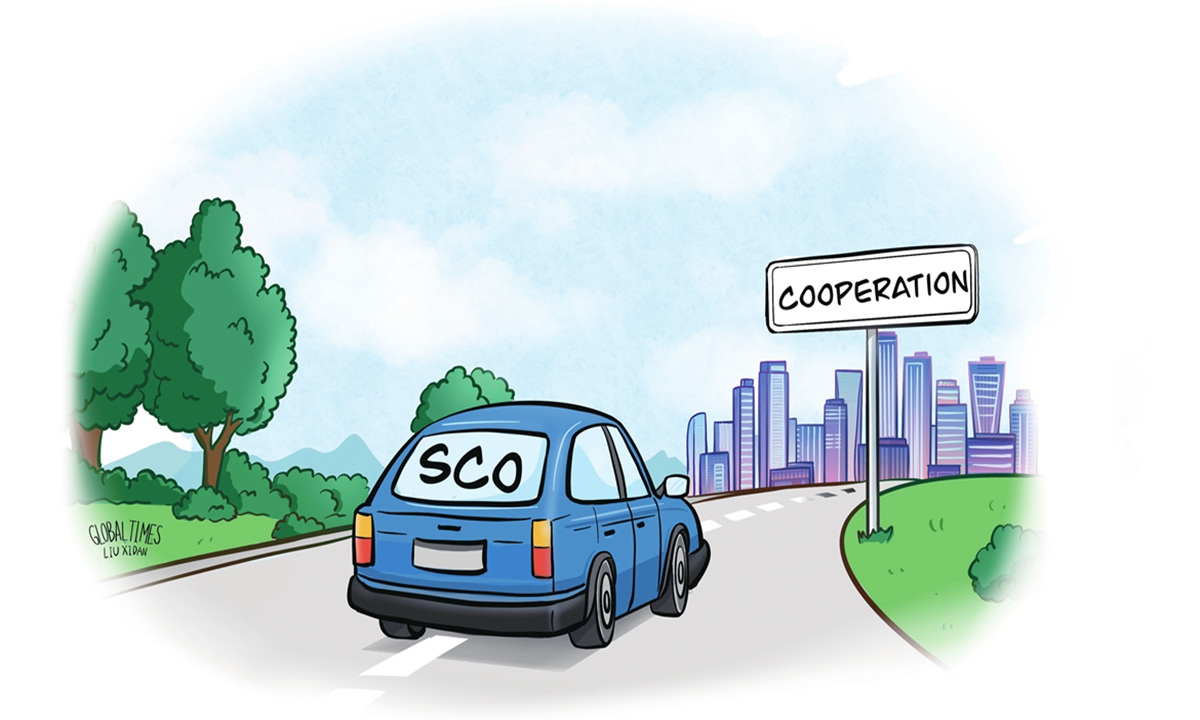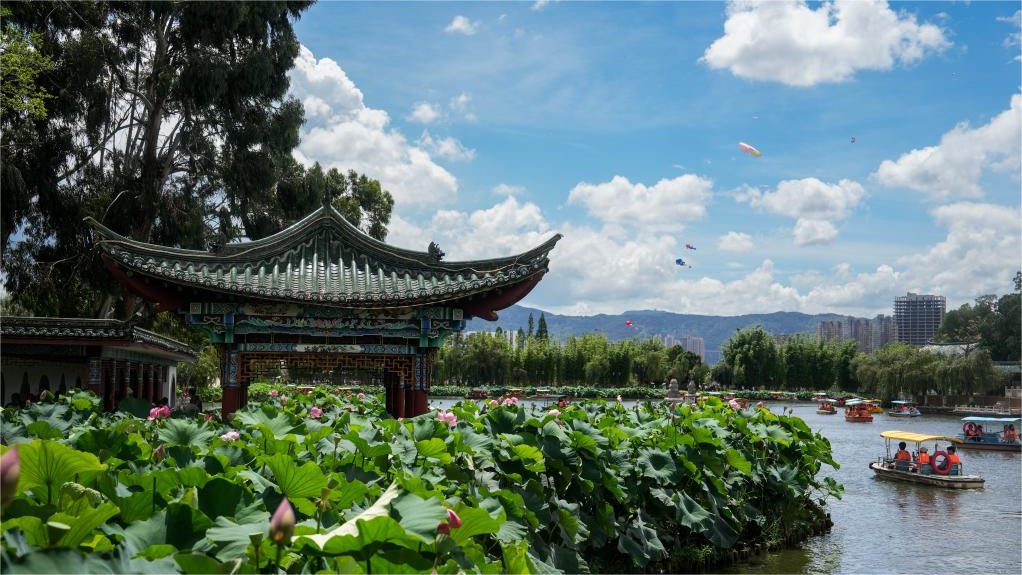SCO a catalyst for inclusive, effective cooperation

Illustration: Liu Xidan/GT
Astana is the host of the ongoing Shanghai Cooperation Organization (SCO) summit. The summit has already become one of the key international events.
The world currently is facing profound changes, which has brought both challenges and new opportunities for the SCO. It can be said that this era of historical change is opening a new strategic "window" for the SCO. The organization can make a significant contribution to ensuring peace and stability in the world. The SCO, a mechanism for developing good-neighborly relations, confidence-building and security for China, Russia and Central Asian countries, has evolved into an organization of interregional cooperation with the accession of India, Iran and Pakistan.
The root of the harmony in relations among small, medium and large SCO member states lies in the convergence of the interests of one country with those of the powers playing an active role in the SCO region.
To better understand the prospects of the SCO in new historical conditions, attention should be given to the concept of "Shanghai Spirit," which is the cornerstone of the SCO. The "Shanghai Spirit" is a value concept which champions mutual trust, mutual benefit, equality, consultation, respect for diversity of civilizations and pursuit of common development. The "Shanghai Spirit" reveals the SCO's mission, as well as the principles and philosophy of the organization.
The "Shanghai Spirit" introduces a new security concept, emphasizing that a state's security is interconnected with that of the region and the world as a whole.
Today's world is characterized by a high degree of interdependence among countries. Most of the problems are cross-border in nature, such as financial and energy crises, environmental pollution, terrorism and the spread of diseases. These challenges can only be addressed through multilateral cooperation, rather than through opposition.
The traditional idea of security was developed during times of frequent wars and political upheaval, and it focuses on using military and diplomatic strategies to address security threats. Proponents of this approach view security as a game - if one wins, then the other is defeated. There is a need for military alliances and a constant build-up of military power. For instance, NATO is seen as a relic of the Cold War, as it began building up its forces after the collapse of the Soviet Union with a Cold War mentality. This approach is not as relevant in the 21st century.
The "Shanghai Spirit" offers a new model of international relations and security. Its distinctive features include the peaceful resolution of inter-state conflicts and the unacceptability of armed pressure. All countries are considered equal members of the international community.
The SCO principles, such as consensus-based decision-making, non-alignment and mutually beneficial cooperation, provide the organization with a number of advantages, which are also its strengths in the current era of global turbulence.
While the UN and other global organizations can provide a common vision for the global development agenda, such as the Sustainable Development Goals, it is at the regional level where countries better understand the specifics of their region, established external relations, traditions and how to offer effective mechanisms and measures to implement a common agenda for mutually beneficial development. A better understanding of the real situation on the ground contributes to the more effective implementation of efforts to achieve the UN Sustainable Development Goals.
Over the past two decades, the SCO, starting with the settlement of border issues among relevant countries, has transformed into an organization of interregional cooperation. This cooperation spans a wide range of issues, including security, education, humanitarian aid, economic cooperation, culture and other areas of common interest.
The SCO has successfully contributed to establishing effective regional cooperation in political, trade, economic, cultural, educational and other fields, while also maintaining peace, security and stability in the region. In this context, the SCO member states fully complement each other. The SCO's mission in the current era of global turbulence and profound changes is of particular importance - to act as a catalyst and platform for inclusive and effective forms of cooperation. The SCO remains one of the most stable and reputable organizations.
The author is an independent political analyst based in Bishkek, Kyrgyzstan.
Photos
Related Stories
- SCO countries work together to promote green development
- Green Development Forum of SCO Countries opens in Qingdao
- Interview: SCO Astana Summit opens new chapter in boosting Central Asia-China cooperation -- Uzbek scholar
- Interview: SCO Astana summit strengthens mutual trust, boosts economic development among member countries, says Kazakh expert
- SCO demonstration area emerges as logistics hub for international trade
Copyright © 2024 People's Daily Online. All Rights Reserved.









